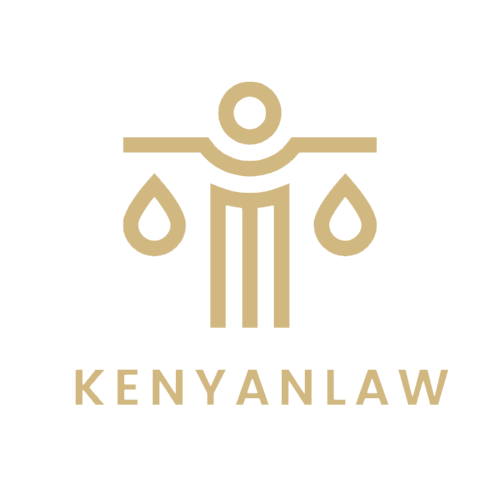Small Claims Court Kenya
- Davis Kiprono

- Aug 23, 2021
- 4 min read

Establishment of the Court
Section 4(1) of the Small Claims Court Act according to Article 169(1) (d) of the Constitution of Kenya which creates subordinate courts
Objective of the court
To guarantee access to justice as under Article 48 of the Constitution of Kenya through the simplicity of the procedure, timely disposal of proceedings, fairness of process and reasonable court fees.
Who presides over a Small Claims Court?
The court is presided over by an adjudicator appointed by the Judicial Service Commission who is an advocate of the High Court of Kenya with at least three years experience in the legal field.
The CJ may also designate any judicial officer to act as an adjudicator.
Who can lodge a claim before the SCC?
A person has a right to lodge a claim before the SCC only if:
● He or she ordinarily resides or carries on business within the local limits of the jurisdiction of the court.
● The subject matter of the claim is situated within the local limits of the jurisdiction of the court.
● The contract to which the claim relates was either made or was intended to be performed within the local limits of the jurisdiction of the court.
● The cause of action arose within the local limits of the jurisdiction of the court.
● The defendant to the claim resides within the local limits of the jurisdiction of the court.
What matters can be heard before the SCC?
The court has jurisdiction to determine civil claims with a monetary value of one million shillings or less (1,000,000)
The civil claims are only ones that relate to:
● A contract for sale and supply of goods and services
● A contract relating to money held and received
● Liability in tort in respect of loss or damage caused to any property or for the recovery of movable property
● Compensation for personal injuries
● Set-off and counterclaim under any contract
What matters cannot be heard before the SCC?
● Criminal matters
● Civil matters in which the value of the claim is beyond one million shillings.
● A claim founded on defamation, libel, malicious.
● A claim founded on malicious prosecution.
● A claim founded upon a dispute over a title to or possession of land.
● A claim founded on employment and labour relations.\
What is the procedure before the SCC?
● Rules on filing of claims before the court are flexible.
● The procedures in the court are deliberately informal, simple and straightforward.
●The language of the court during proceedings will be English, Kiswahili or any other appropriate language.
● The Court is to facilitate the use by parties of indigenous languages, Kenyan sign language, Braille and other communication formats and technologies accessible to persons with disabilities.
● Strict application of the Rules of Evidence is excluded by the SCC Act. The court may admit as evidence material the court considers credible or trustworthy even though such material may not be admissible in other courts.
● Parties can proceed entirely based on documents presented to the court without having to make oral representations in court.
Who can represent you in court?
● A party can appear in person or where he or she is unable to appear in person, be represented by a duly authorized representative
● The duly authorized person has to have sufficient knowledge of the case and sufficient authority to bind the person being represented.
What are the orders that can be made by the court?
● Order to pay money either in a lump sum or in instalments
● Order for the restitution of any movable property
● Order for the recovery of any sum concerning the performance of a contract
● Order dismissing the claim to which the proceedings relate
● Any consequential or ancillary orders as may be necessary, including any stipulations or conditions for the enforcement of its orders or directions
How long does the entire SCC process take?
● Under the SCC Act, all proceedings before the court on any particular day shall as far as possible/practicable be heard and determined on the same day or a day to day basis until final determination.
● Judgment given in determination of any claim shall be delivered on the same day and in any event, no later than three days from the date of hearing.
● Adjournment of a hearing by the court shall only be done under exceptional circumstances.
Can you appeal the decision of the SCC?
● A person aggrieved by the decision or an order of the court may appeal against that decision or order to the High Court on matters of law.
● The decision of the High Court shall be final.
Can the decision of the SCC be reviewed?
An adjudicator may, on application by any aggrieved party or his/her motion, review any order of the court on the ground that:
● the order was made ex parte without notice to the applicant
● the claim or order was outside the jurisdiction of the court
● the order was obtained fraudulently
● there was an error of law on the face of the record
● new facts previously not before the court have been discovered by either of the parties.
Where is the Small Claims Court operationalized?
Currently (as of July 2021), the SCC is operational at Milimani Commercial Court Nairobi. The court was gazette vide Gazette Notice No. 3791 of 2021 by the then Attorney General. Chief Justice Philomena Mwilu on April 23 2021.
CJ Martha Koome issued a notice on 21st July, has pledged to devolve Small Claims Courts to additional parts of Nairobi and other regions from October.
Need more Information?
Visit the Small Claims Court Act (Act No. 2 of 2016)
Disclaimer: This article is not to be taken as legal advice



Comments